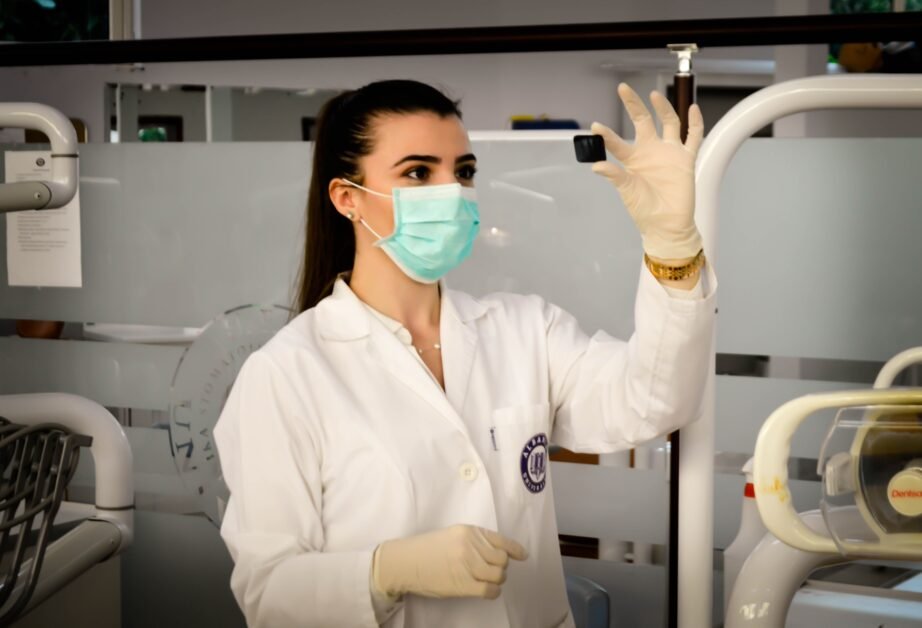Exploring Alternative Medicine Practices for Holistic Healing
At Alternative Medicine Facts, we are dedicated to promoting holistic healing and empowerment through the exploration of alternative medicine practices. Our goal is to provide you with reliable and evidence-based information, allowing you to make informed decisions about your health and well-being. By delving into various alternative approaches to wellness, we aim to inspire and support your journey towards a more balanced and fulfilling life. With a focus on holistic healing, we invite you to join us as we explore the fascinating world of alternative medicine practices.

Introduction
Welcome to the world of alternative medicine, where holistic healing and personalized treatments take center stage. In this article, we will explore the definition of alternative medicine, its principles, and the various types of practices it encompasses. We will also delve into the numerous benefits it offers and discuss some of the popular alternative medicine practices. Additionally, we will examine the scientific evidence and research behind alternative medicine, the considerations to keep in mind when choosing a practitioner, and the importance of integrating alternative medicine with conventional medicine. Safety considerations, cost and insurance coverage, and a concluding reflection will wrap up our comprehensive exploration of alternative medicine.
What is Alternative Medicine?
Definition
Alternative medicine, also known as complementary and integrative medicine, refers to a broad range of therapeutic practices and healthcare approaches that are not considered part of conventional medicine. It takes into account the whole person – mind, body, and spirit – and aims to promote wellness and enhance the body’s innate capacity for healing.
Principles
Alternative medicine is guided by several principles that distinguish it from conventional medicine. Firstly, it emphasizes a holistic approach, focusing on the interconnectedness of various aspects of an individual’s health. Secondly, alternative medicine promotes natural healing, utilizing natural remedies and therapies to stimulate the body’s self-healing abilities. Thirdly, it embraces personalized treatment, recognizing that each person is unique and requires tailored approaches to address their specific health concerns. Lastly, alternative medicine strives for fewer side effects by using therapies that are gentle and non-invasive.
Types of alternative medicine
Alternative medicine encompasses a wide array of practices, each with its own unique approach to healing. Some of the most popular types of alternative medicine include acupuncture, herbal medicine, Ayurveda, homeopathy, naturopathy, chiropractic care, massage therapy, meditation, yoga, and Reiki. These practices draw from ancient traditions and are rooted in cultures from around the world, offering diverse perspectives on health and wellness.
Benefits of Alternative Medicine
Holistic approach
One of the major benefits of alternative medicine is its holistic approach to healthcare. Unlike conventional medicine, which often focuses on treating specific symptoms or diseases, alternative medicine considers the individual as a whole. It takes into account physical, mental, emotional, and spiritual aspects of health, recognizing that imbalances in one area can affect overall well-being. By adopting a holistic approach, alternative medicine aims to restore balance and harmony within the body, leading to improved overall health and wellness.
Promotes natural healing
Alternative medicine places great emphasis on natural healing processes, utilizing therapies and remedies derived from nature. It harnesses the power of herbs, plants, minerals, and other natural substances to stimulate the body’s innate healing mechanisms. By supporting the body’s natural processes, alternative medicine aims to address the root causes of health issues, rather than simply suppressing symptoms. This approach can lead to longer-lasting and more sustainable results.
Personalized treatment
Every person is unique, with their own set of health concerns and needs. Alternative medicine recognizes this individuality and tailors treatments accordingly. Instead of adopting a one-size-fits-all approach, alternative medicine practitioners take the time to understand each patient’s specific condition, lifestyle, and preferences. This personalized approach ensures that treatments are targeted and effective, addressing the underlying causes of health issues rather than providing generic solutions.
Potential for fewer side effects
Another advantage of alternative medicine is the potential for fewer side effects compared to conventional medicine. Many alternative therapies rely on natural remedies and non-invasive techniques, reducing the risk of adverse reactions. By avoiding or minimizing the use of harsh chemicals or invasive procedures, alternative medicine provides a gentler and often safer approach to healthcare. Nonetheless, it is essential to consult with a qualified practitioner and disclose any existing health conditions or medications to ensure safety and compatibility.
Popular Alternative Medicine Practices
Acupuncture
Acupuncture, a practice originating from traditional Chinese medicine, involves inserting thin needles into specific points on the body to stimulate energy flow and promote healing. It is commonly used to address pain, reduce stress, and aid in various health conditions.
Herbal medicine
Herbal medicine utilizes plants and their extracts to address various health conditions. These natural remedies often have a long history of traditional use and can be administered as teas, tinctures, or supplements. Herbal medicine encompasses a wide range of plants, each with its unique properties and therapeutic benefits.
Ayurveda
Ayurveda is an ancient healing system originating in India that focuses on achieving balance and harmony within the body. It emphasizes the importance of individualized treatment plans, incorporating dietary changes, herbal remedies, yoga, meditation, and other practices to promote well-being.
Homeopathy
Homeopathy is a system of medicine that is based on the principle of “like cures like.” It involves using highly diluted substances derived from plants, animals, and minerals to stimulate the body’s self-healing abilities. Homeopathy aims to address the root causes of illness and promote overall vitality.
Naturopathy
Naturopathy is a holistic approach to healthcare that encompasses a wide range of therapies and treatments. It emphasizes the body’s inherent ability to heal itself and focuses on natural remedies, lifestyle modifications, and dietary changes to support overall health and wellness.
Chiropractic care
Chiropractic care primarily focuses on the spine and its connection to the nervous system. By manipulating the spine and applying specific adjustments, chiropractors aim to restore proper alignment, relieve pain, and improve overall health.
Massage therapy
Massage therapy involves manual manipulation of the body’s soft tissues to promote relaxation, reduce muscle tension, and improve circulation. Various techniques, such as Swedish massage, deep tissue massage, and Thai massage, are utilized to address specific needs and preferences.
Meditation
Meditation is a practice that involves training the mind to focus and redirect thoughts for relaxation and heightened awareness. It has been used for centuries to reduce stress, promote mental clarity, and improve overall well-being.
Yoga
Yoga is a mind-body practice originating in ancient India that combines physical postures, breathing exercises, and meditation. It promotes strength, flexibility, stress reduction, and overall physical and mental well-being.
Reiki
Reiki is a Japanese technique that involves the transfer of universal energy through the palms of the practitioner’s hands. It aims to balance the body’s energy flow and promote relaxation, stress reduction, and healing.

Scientific Evidence and Research
Challenges in studying alternative medicine
Studying alternative medicine presents unique challenges due to its diverse nature and often individualized approach to treatment. Standardized research methods that work well for pharmaceutical interventions may not be as suitable for evaluating alternative therapies. Additionally, alternative medicine practices often involve multiple and complex interventions, making it challenging to isolate specific factors for research purposes.
Promising research findings
Despite the challenges, there is increasing scientific interest in alternative medicine, and several studies have shown promising results. For example, research on acupuncture has demonstrated its effectiveness in relieving chronic pain, improving sleep quality, and reducing symptoms of various conditions. Herbal medicine has also garnered attention, with studies highlighting the potential benefits of certain herbs in managing specific health conditions.
Criticism and skepticism
Alternative medicine also faces criticism and skepticism, primarily due to the lack of rigorous scientific evidence for some practices. Skeptics argue that the placebo effect or other non-specific factors may contribute to perceived benefits. However, it is important to note that scientific research continues to evolve, and while more studies are needed, there is a growing body of evidence supporting various alternative medicine practices.
Choosing an Alternative Medicine Practitioner
Credentials and qualifications
When seeking alternative medicine treatments, it is essential to choose a qualified and reputable practitioner. Look for credentials and certifications specific to the practice, as well as any relevant licensure. Additionally, inquire about the practitioner’s educational background and whether they have completed any additional training or specialization in their chosen field.
Experience and expertise
Experience and expertise are valuable indicators of a practitioner’s skill and knowledge. Inquire about the number of years they have been practicing, the types of conditions or concerns they commonly address, and any areas of specialization they may have. It can be helpful to ask for testimonials or speak with previous clients to gain insights into their experiences.
Personal compatibility
Establishing a good rapport and feeling comfortable with your alternative medicine practitioner is crucial. Since these treatments often involve a holistic and personalized approach, it is essential to find a practitioner with whom you feel a sense of trust, mutual respect, and open communication. Trusting your practitioner and feeling comfortable discussing your concerns can enhance the effectiveness of the treatment.
Referrals and recommendations
Ask friends, family, or trusted healthcare providers for recommendations when searching for an alternative medicine practitioner. Referrals from people you trust can provide valuable insights and help you find a practitioner who aligns with your needs and preferences. Additionally, conducting online research and reading reviews can provide further guidance in making an informed decision.

Safety Considerations
Potential risks and side effects
Although alternative medicine generally poses fewer risks and side effects compared to conventional medicine, it is not without potential risks. Herbal remedies, for example, can interact with medications or cause allergic reactions in some individuals. Additionally, some therapies may have contraindications for certain medical conditions. It is crucial to disclose your complete medical history to your alternative medicine practitioner and consult with all healthcare providers involved in your care to ensure safety and compatibility.
Interactions with conventional medicine
If you are currently receiving conventional medical treatments, it is essential to inform your healthcare providers about any alternative medicine therapies you’re considering or currently undergoing. Some alternative therapies may interact with medications or interfere with ongoing treatments. Open communication between all healthcare providers involved in your care is vital to ensure comprehensive and safe treatment.
Regulations and licensing
Different countries and regions have varying regulations and licensing requirements for alternative medicine practitioners. It is essential to research the regulations and licensing standards in your area to ensure that the practitioner you choose adheres to the appropriate guidelines. These regulations often exist to protect the public’s safety and ensure that practitioners have met specific educational and ethical standards.
Quality control
As with any healthcare practice, quality control contributes to the safety and effectiveness of alternative medicine treatments. Be cautious of practitioners or products that make exaggerated claims or promise miraculous results. Look for reputable sources, certified practitioners, and well-established organizations within the alternative medicine community.
Integrating Alternative Medicine with Conventional Medicine
Importance of open communication
Integrating alternative medicine with conventional medicine requires open and honest communication between all healthcare providers involved in your care. Keep each provider informed about the treatments you are undergoing, including any alternative therapies. This allows for a comprehensive understanding of your health and helps prevent any potential conflicts or disruptions in your treatment plan.
Collaborative approach
An integrated approach to healthcare involves collaboration between alternative medicine practitioners and conventional healthcare providers. By working together, they can share information, expertise, and insights, which can result in a more comprehensive and effective treatment plan. Collaboration also allows for a deeper understanding of the patient’s needs, ensuring that all aspects of their health and wellness are considered.
Finding the right balance
Integrating alternative medicine with conventional medicine is about finding the right balance that works for you. It may involve combining therapies from both approaches, or it could mean using alternative medicine as a complement or support to conventional treatments. The most important aspect is to prioritize your health and well-being and make informed decisions in consultation with your healthcare providers.

Cost and Insurance Coverage
Affordability
The cost of alternative medicine treatments can vary depending on the type of therapy, the practitioner’s experience, and your geographical location. Some therapies may be covered by health insurance plans, while others may require out-of-pocket expenses. It is advisable to research the costs involved and consider your budgetary constraints when exploring alternative medicine options.
Health insurance coverage
While alternative medicine practices are gaining recognition and acceptance, insurance coverage for these treatments can still be limited. Some insurance plans offer coverage for certain alternative therapies, such as chiropractic care or acupuncture, while others may not. It is important to review your health insurance policy or contact your insurance provider to determine what alternative medicine services may be covered.
Conclusion
In conclusion, alternative medicine offers a holistic and personalized approach to healthcare, focusing on natural healing and promoting overall well-being. From acupuncture and herbal medicine to yoga and meditation, there is a wide range of alternative medicine practices to explore. While scientific evidence and research continue to evolve, alternative medicine has shown promising results and continues to gain recognition. It is important to choose a qualified practitioner, prioritize safety considerations, integrate alternative medicine with conventional treatments, and consider the cost and insurance coverage when exploring alternative medicine options. By embracing alternative medicine, you can empower yourself to take an active role in your health and well-being, contributing to a happier and more balanced life.








